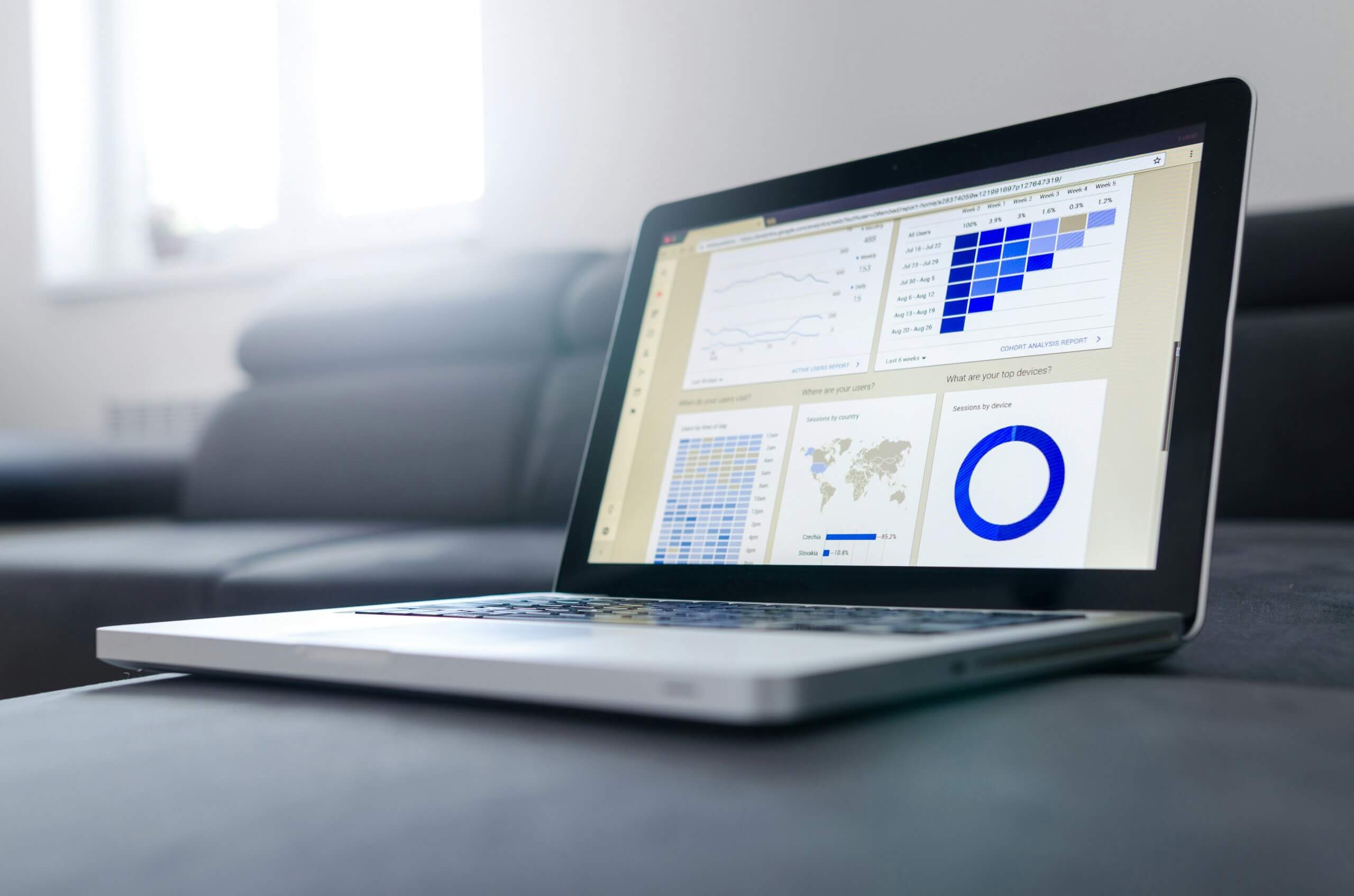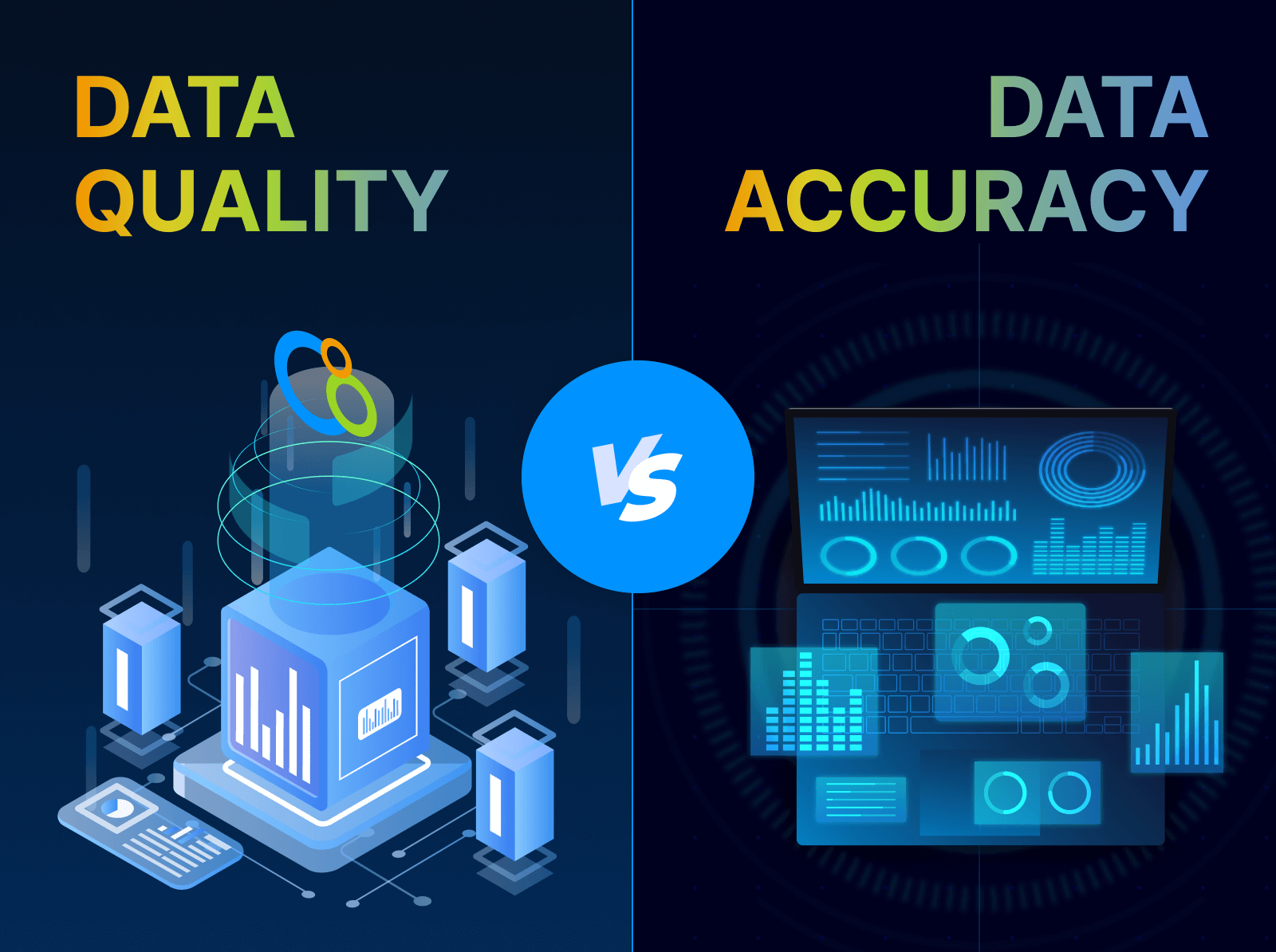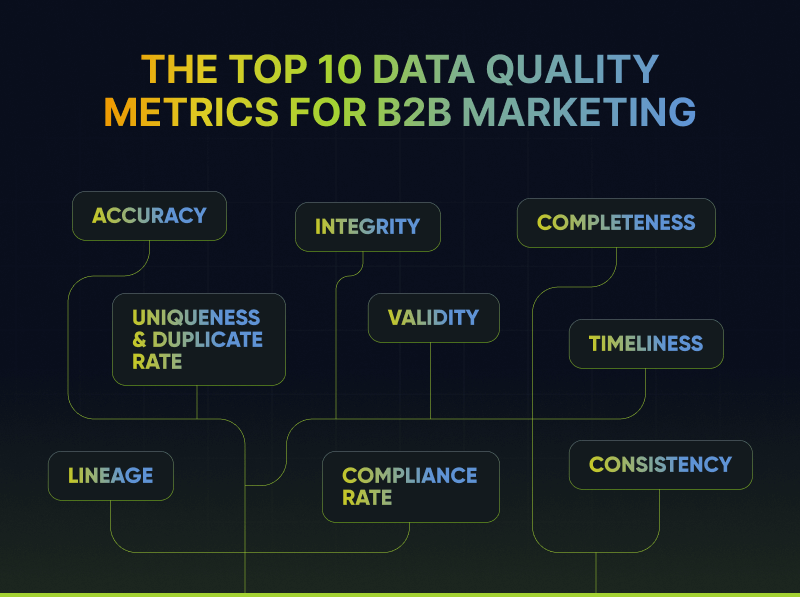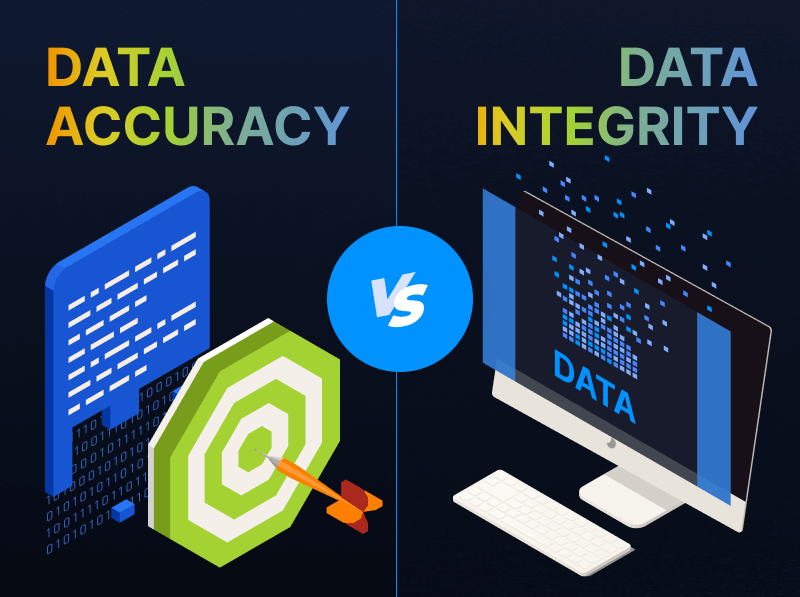The New B2B Buying Journey: What Should Marketers Be Thinking About?
Today’s B2B world is undergoing a paradigm shift. And from it, a new kind of B2B buyer is emerging – one with different needs, wants and expectations; a buyer accustomed to consuming content and researching on their own terms, and demanding access and information beyond neatly prescribed buying journeys. For Marketers, it means accepting the demise of our carefully constructed journey maps and artificially timed conversion points because today’s buyers are carving out their own paths to purchase.
To better understand this shift, we spoke with Forrester analyst, Lori Wizdo, to learn more about what she’s seeing and what the market is showing in this 3-part video series.
Part I: Why B2B Marketing Must Become Buyer-Driven
Drawing from research on the “age of the customer” and the notion of customer obsession as a strategy for B2B success, we get a preview of new Forrester data that points to why marketers must move to a buyer-driven, “Go-To-Customer” strategy.
1. B2B buyers are more digitally self-directed.
According to Forrester, the COVID pandemic elevated trends already in play. Namely, that in-person sales rep now top the list of less important sources of influence for buyers, while vendor webinars, websites, and social media are listed as the most important. In sum, the influence of sales reps is diminishing and is now roughly equivalent to websites and external third-party influencers.
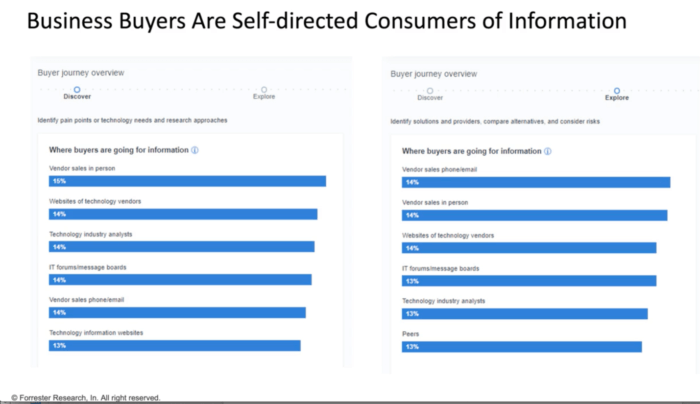
2. Buyers are doing more due diligence than ever.
Forrester went on to find that the number of total interactions during the purchase process has increased from 17 in 2019 to 27 in 2021 – an increase of nearly 60%. At the same time, purchase timeframes are also increasing.
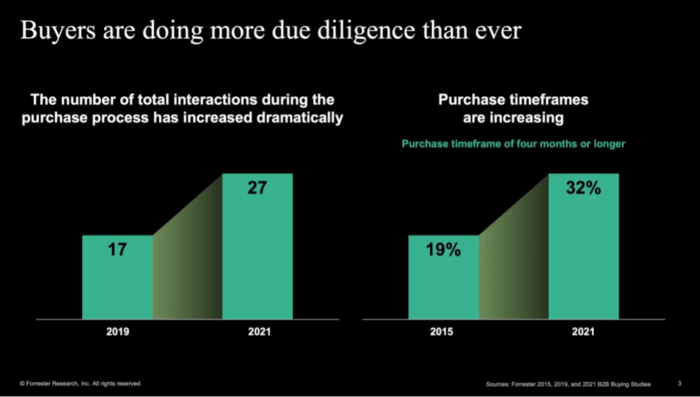
3. Buying teams are getting bigger.
With more touchpoints, longer cycles, and more people, the buying group is growing increasingly more complex. In addition, there are more executives involved in buying decisions, necessitating different communication and messaging.
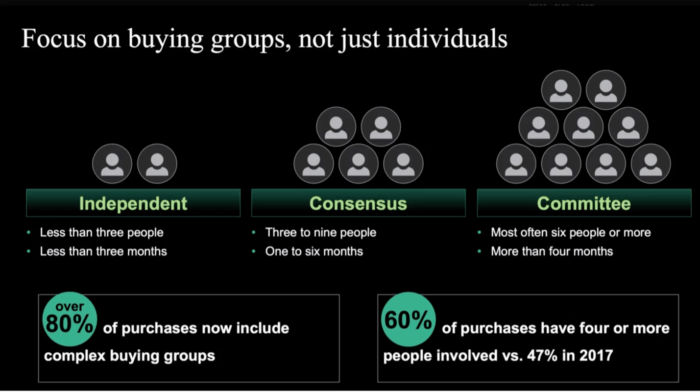
To hear more about this changing landscape, check out the first video in the series.
Part II: Adapting in the New Era of B2B Marketing – the Convergence of ABM and Demand
In the second video segment with Lori, we discuss the convergence of ABM and Demand, which Forrester has been predicting for the past few years and what we at Integrate call Precision Demand Marketing. Marketers are increasingly finding that both ABM and demand programs require different support beyond what their ABM or MAP platforms can provide, especially around multi-channel programs. Precision Demand Marketing is the next-level strategy that helps marketers meet buyers where they are – orchestrating touchpoints across all channels – to connect in more meaningful and personalized ways.
To this end, Lori shares Forrester research reporting that 54% of marketers said their desired state was to have demand and ABM practices that are at least “broadly aligned” – sharing people, processes, and tools and 22% reporting that their desired state was to have demand and ABM “fully aligned.”
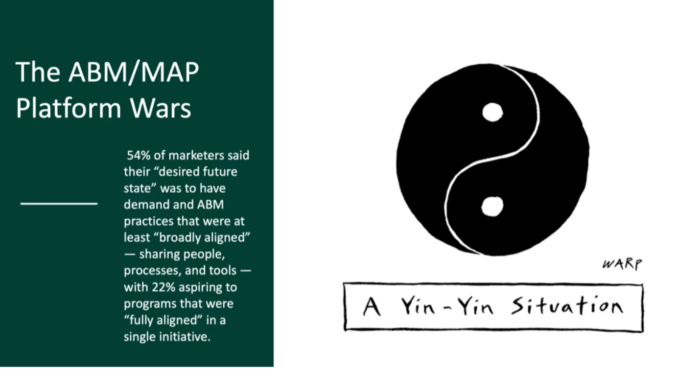
Additionally, in the Forrester Q3 2020 Global B2B Marketing Tech Tide Survey, in the next 3 years, 43% of B2B marketers say they would consider using an ABM platform as their core marketing platform.
All these stats demonstrate that the status quo of ABM or Demand is no longer enough. Today’s marketers need an omnichannel, buyer-driven approach to orchestrate. To do so, marketers are recognizing that there is a process that’s more important to align with, and that’s the buyer’s process.
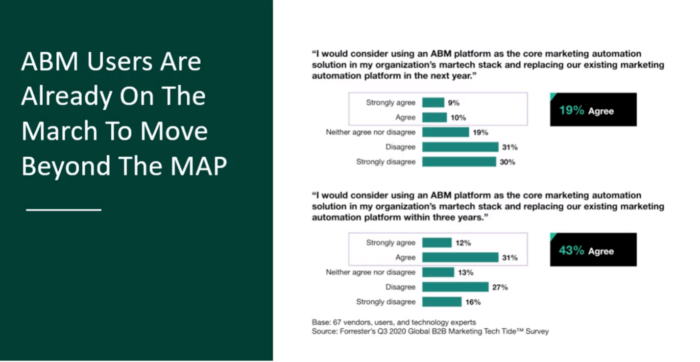
According to Lori, “ABM is going to go away as a separate strategy. It’s just good marketing.” But the lasting benefit is that it has caused marketing and sales to focus on the same targets. It’s also created this idea that there isn’t a mid-funnel ownership flip – instead it’s a blended delivery model toward a customer engagement strategy calibrated to the buyer’s journey.
To hear more about this shift from separate ABM and demand functions toward a Precision Demand Marketing approach, check out the second video in the series.
Part III: The Path Forward for a Buyer-Driven Marketing Strategy
In today’s new era of B2B marketing, we need to adapt and shift our mindsets toward the buyer’s process. And that process must be connected, aligned, personalized and responsive to how buyers choose to make their purchases. In this segment, we talk with Lori Wizdo on the 5 core functions marketers need to consider for orchestrating a buyer-first, omnichannel experience.
- Better targeting. If we aren’t focused on the right segments, we’re not going to get the right results. This requires precision.
- Activating connected cross-channel campaigns. It’s about building trust – we need to persuade, communicate, inform, but also build a relationship through touchpoints to deliver an exceptional experience that converts.
- Connecting your technology and building integrated ecosystem to amplify reach and expand access to orchestrate an intelligent buyer’s journey. It’s the core enabler of always-on marketing.
- Measurement to gain visibility across channels to understand and optimize program performance. How do you refine account-based tactics, monitor budget, track ROI? What is the bigger picture across channels and how do we get better? We measure to prove our value, but also to get better.
- Governance of data. To perform all these functions well, we need to have marketable data. In today’s world, it’s important to standardize data and ensure compliance with global privacy laws.
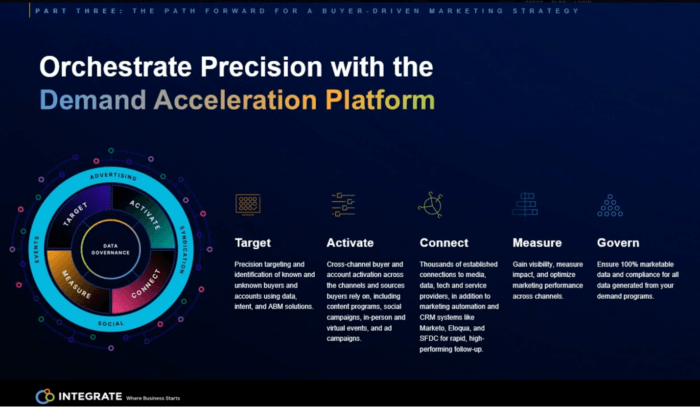
The overall takeaway for marketers? B2B marketing has changed and will continue to evolve as in this new buyer-driven world. But it’s also a great time to be a B2B marketer because we’re at the cusp of B2B marketing truly becoming a strategic driver within an organization.
To learn more, watch the third video in the series.

